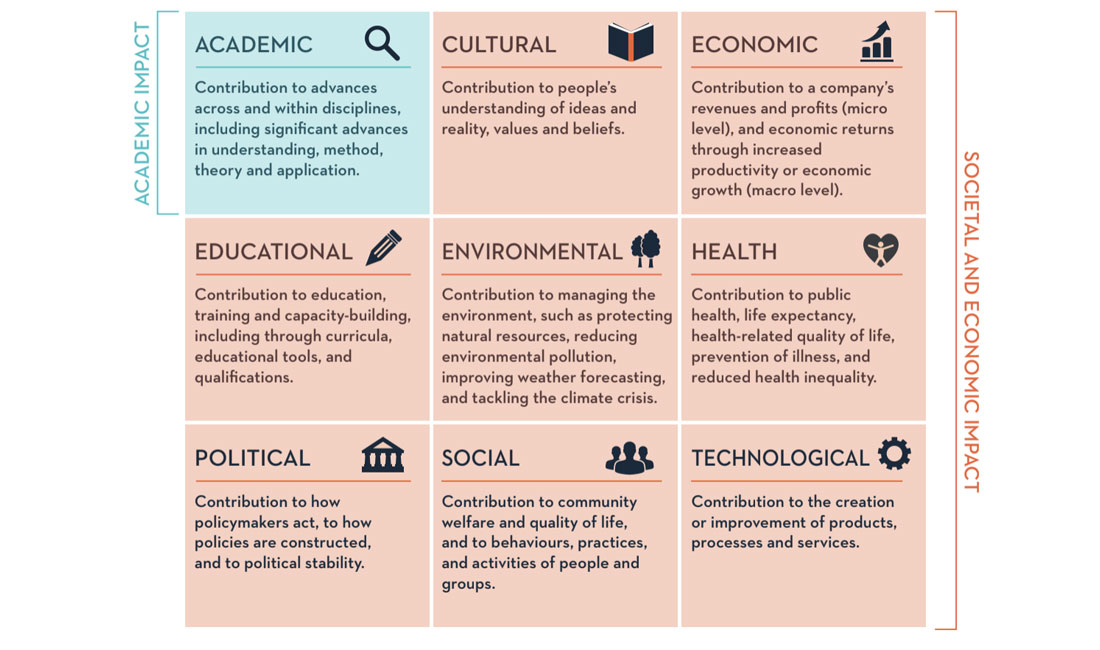Research impact refers to the effects that research has on society, the economy, and other fields of study. It's a way of measuring how research influences practices and policies in real-world contexts. Assessing research impact involves looking at various indicators, such as citation counts, media coverage, and stakeholder feedback. It's a way to demonstrate the broader value and significance of research. There are two main types of impact:
 Infographic was created by the University College Dublin.
Infographic was created by the University College Dublin.
Infographic was created by the University College Dublin.
Evaluating research impact is important for researchers for many reasons. On the large scale, it can help to justify investment to stakeholders, increase transparency in the research process, and promote accountability for researchers. On an individual level, it can be evidence for applying for grants, getting promoted, and earning awards. Being aware of your own impact can help you follow research trends, which is useful for identifying possible collaboration opportunities.
As stated in the strategic plan, FGCU prioritizes high impact practices. By emphasizing impact on an individual level, we get closer to achieving our university's vision. Having high levels of research impact can help the University's ranking, secure funding, and attract students and faculty. Focusing on issues and research on a larger scale like this also encourages interdisciplinary collaboration.
